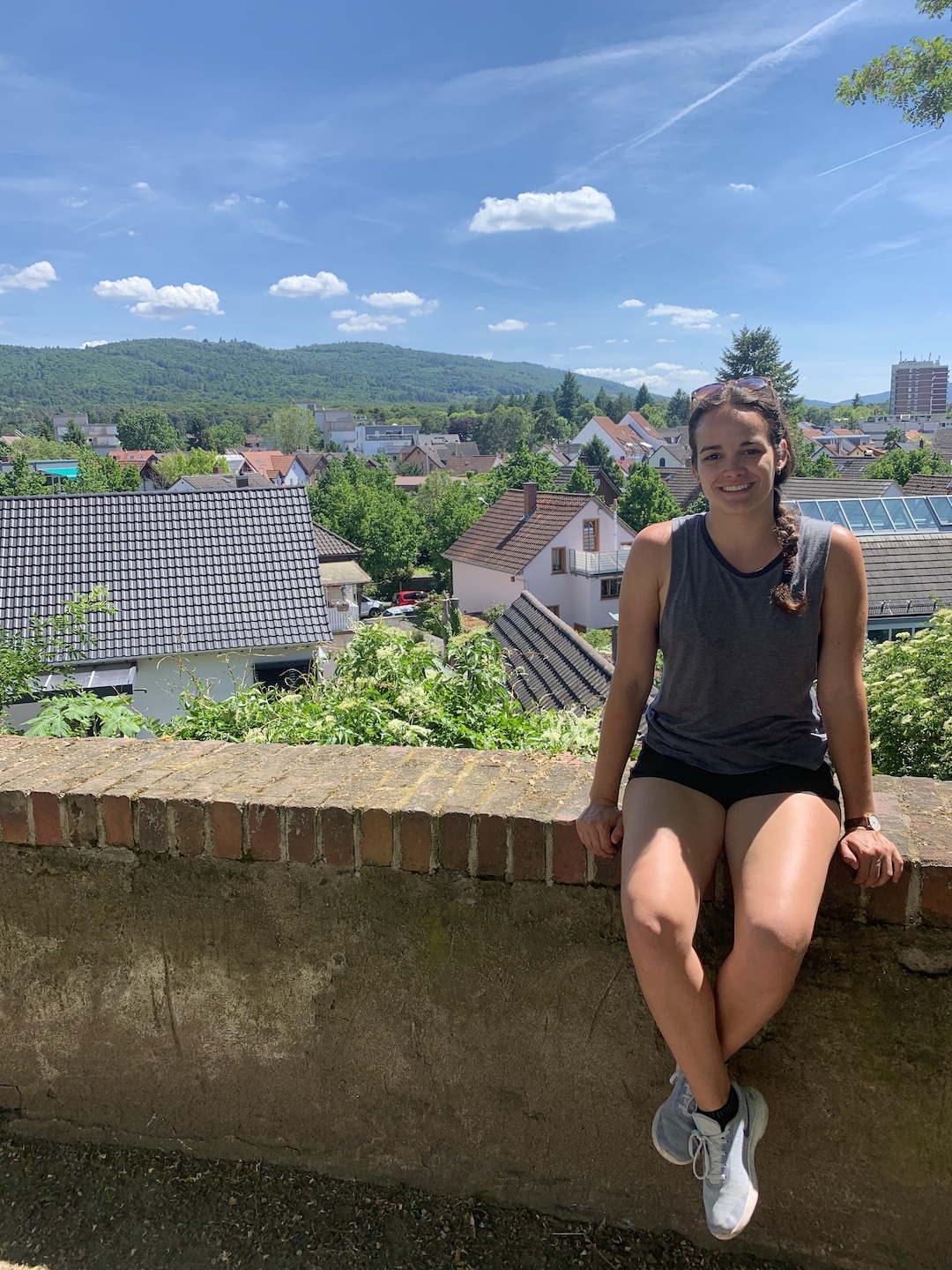
Expanding her horizons
Undergraduate brings an international viewpoint to local agriculture.
By Ashleigh MatternAmy Carruthers (BSc, 2020) says camel milk tastes like “a slightly saltier version of Dairyland cow milk.”
Trying the milk at a camel dairy farm was one of the more unique experiences Carruthers had while on her study abroad semester in 2019. The farm is the only camel dairy in Europe, located not far from where she was living in 's-Hertogenbosch, Netherlands.
She also had a chance to visit a dairy farm, beef farm and pig farm, experiencing firsthand how Dutch farming practices vary from Canada.
“My favourite part was meeting the people behind the farms and watching them do what they love,” she said. “The people I met really were the ones who made it possible for me to see so many different aspects of Dutch agriculture.”
She was overseas for five months, and in addition to those farm tours and her studies at HAS University of Applied Sciences, she managed to squeeze in visits to more than 10 countries, including Norway, Morocco, Scotland, Denmark, Croatia, Spain and France.
It was an unforgettable experience, and even more precious once travel restrictions for COVID-19 came into effect the following year. While it may be some time now before other students get the opportunity to study abroad, Carruthers said she would encourage any student interested to go for it.
“I highly recommend getting that experience and getting outside your comfort zone, learning to be comfortable with being uncomfortable,” she said.
A different perspective
Her interest in the study abroad program developed over time during her studies at the College of Agriculture and Bioresources. The more Carruthers learned about the world of agriculture, the more she became interested in international agriculture practices.
Carruthers said the experience gave her an entirely new perspective of the global agriculture industry.
“Learning about what happens outside Canada, where’s all my food coming from that isn’t grown here? Getting a different perspective,” she said. “It allowed me to be interested in different areas of agriculture that I wouldn’t have been interested in if I’d stayed in Canada.”
She said the Canadian agriculture schooling is generally very technical, “you learn the details and go into a process or theory and get into the roots then apply it.” In Europe, education was broader.
“I took a class called circular economy, which focused on efficient use of resources, food and residuals, to provide students with the whole picture of an agricultural process.”
Carruthers has long been acquainted with the world of agriculture. Her grandparents were farmers and her parents still farm, working full-time while managing a small purebred Angus herd and running stocker cattle.
Growing up in Paradise Hill, Sask., she was involved with 4H and said she always loved working with cattle.
In high school, she sold farm fresh frozen lamb, sparking her initial interest in the economics of agriculture.
“The sheep were my own, which started the entrepreneurial flame in me,” she said. “I raised them in high school and sold them to different people in the summertime when they were finished. That little lamb business of mine … led me into the agribusiness degree.”
Carruthers graduated in spring 2020 with her degree in agribusiness and is continuing on to graduate studies in agricultural economics.
Her long-term goal is to run her own business, and while she’s not exactly sure what direction that might take right now, she is interested in direct marketing, like she did selling finished lamb directly to consumers.
“We’re seeing a lot more of that now become popular with COVID-19. The shelves are more empty now and where is that food coming from? That’s an opportunity,” she said. “I’m interested in closing that gap between consumer and producer.”
Practical education
When Carruthers does strike out on her own, she knows her agriculture education will serve her well—in part because it already has.
Participating in clubs like the USask Stockman’s Club Beef Team and Rangeland Team not only helped her get to know her fellow classmates better, it deepened her agriculture knowledge.
Through her participation in the Beef Team, Carruthers took a course on how to artificially inseminate cattle—a course her sister has also since completed. She and her sister brought what they had learned back to their parents’ farm and worked together as a family to use the process on the herd.
“That was a great learning experience,” Carruthers said. “The whole university experience, these clubs, opened up opportunities that if I wasn’t involved in the College of Agriculture and Bioresources, I wouldn’t know they existed.”
She also said making connections with members of the Saskatchewan Agriculture Grads Association has been a highlight of her AgBio experience. Even simply running into other people who have attended the college opens a door to conversation.
That sense of community is what Carruthers loves most of all about being an Agro.
“There are people I’ve met that I’ll always be in contact with,” she said.
Agknowledge, December 2020

